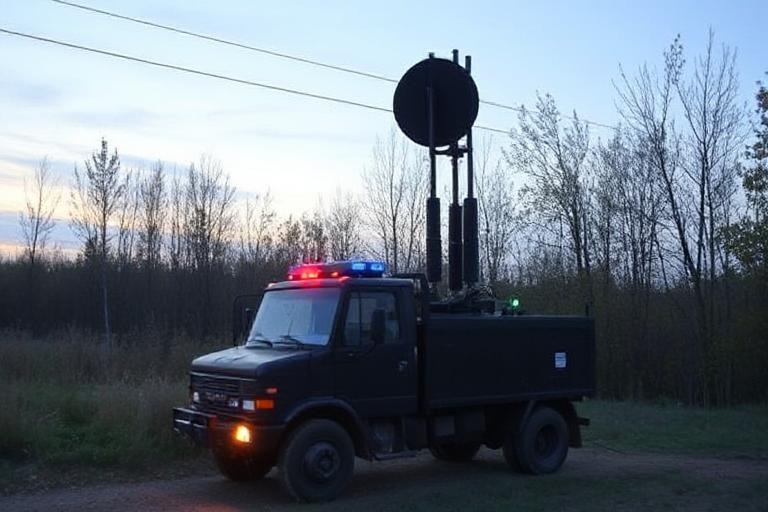Recently, the Latvian Communications Bureau suddenly announced that the sale of cell phone jammers in the country is illegal and launched a large-scale market clearance operation. This decision has triggered extensive discussions in the industry and the public. On the surface, this is due to considerations of aviation safety and radio communication order, but after in-depth analysis, it is not difficult to find that there are more complex technical disputes and political considerations behind this incident.
The dual face of mobile phone signal jammer
A Cell jammer is a device that can emit radio waves of a specific frequency to interfere with or block mobile phone communications within a specific range. This type of equipment was originally developed for military and security purposes to prevent remote-controlled bombs from detonating or to block terrorist communications. With the advancement of technology, the civilian version of the signal blocker is getting smaller and smaller, and the price is becoming more and more affordable, gradually flowing into the commercial market.
In the Latvian market, these jammer devices are mainly used by business elites and politicians to:
– Prevent telephone wiretapping in sensitive meetings
– Block wireless transmissions of hidden camera equipment
– Create a private space without interference
– Prevent corporate espionage
Aviation security: real threat or superficial reason?
The official statement of the Communications Bureau emphasized that the radio noise generated by these signal blockers may interfere with aviation radio communications, especially airport navigation systems, posing a threat to flight safety. This statement is indeed based on technical grounds:
1. Frequency pollution: Many cheap frequency jammers lack precise frequency control, which will cause spectrum leakage and affect adjacent frequency bands
2. Excessive power: In order to expand coverage, some devices transmit power far exceeding the legal limit
3. Harmonic interference: Harmonics generated by non-linear circuits may affect aviation-specific frequency bands
Sensitive coincidence of political election timing
The timing of the important election in Latvia has added a strong political color to the crackdown. Historical experience shows that during elections:
– Increased espionage between political opponents
– Surge in demand for privacy protection equipment
– Increased pressure on information control
In this case, the circulation of cell phone signal jammers may have political considerations beyond the technical level – controlling the flow of information and preventing the opposition from using these devices to evade surveillance.
The subtle struggle between Made in China and Taiwan technology
Most of the seized equipment was labeled “Made in China”, and the Communications Bureau specifically named the products of a Taiwanese company. This company has grown into an important global supplier of reconnaissance and counter-terrorism equipment, and its product lines include:
- Micro surveillance equipment: tie clip cameras, cigarette packaging video recorders, etc.
- Fiberscope probe: can pass through tiny gaps for secret filming
- Disguised interceptor: Communication interception equipment that looks no different from ordinary mobile phones
- Professional countermeasures: Mobile Jammer used to detect and shield eavesdropping devices
This targeted investigation has triggered a discussion on whether there are geopolitical factors behind technical standards. Against the backdrop of increasingly fierce global technological competition, the certification standards for communication equipment may become a tool for trade protection or political gaming.
The eternal debate between privacy and public safety
This incident essentially reflects a fundamental contradiction in modern society: the balance between personal privacy and public safety. Those who support the ban on electronic device jammer believe that:
– Ensure the smooth flow of emergency communications (such as dialing 112)
– Maintain the security of critical infrastructure such as aviation
– Prevent criminal organizations from using jamming devices to commit crimes
Those who oppose the ban argue that:
– Individuals and companies should have the right to protect sensitive information
– Professional places (such as conference rooms, R&D centers) require communication control
– Excessive regulation may inhibit the development of security technology
The EU General Data Protection Regulation (GDPR) emphasizes the right to data protection, but at the same time, the laws of various countries also have strict regulations on radio equipment. Latvia’s approach actually made a choice between the two in favor of public safety.
Reflection on the Latvian incident
The Latvian Communications Agency’s action reveals a deep-seated problem: in today’s rapidly developing technology, the regulatory framework often lags behind the pace of innovation. The ideal approach should be to provide an outlet for legitimate privacy protection needs while ensuring the security of critical infrastructure, such as:
– Establish a hierarchical licensing system
– Formulate strict equipment technical standards
– Conduct usage scenario restriction education
– Develop alternative privacy protection solutions
A simple market raid may reduce the circulation of signal jammer in the short term, but it cannot fundamentally solve the problem. Instead, it may give rise to black market transactions, making equipment quality more uncontrollable, and ultimately exacerbating rather than reducing the risk of radio interference.
Conclusion: Finding a balance between technology and governance
The controversy over mobile phone signal jammers is far more than a technical regulatory issue. It touches on the complex relationship between security and freedom, personal rights and public interests in modern society. The Latvian incident has taught us that in the digital age, any technical control decision needs to comprehensively consider technical feasibility, social needs and governance wisdom, and find a balance between the interests of multiple parties.
In the future, with the popularization of new technologies such as 5G and the Internet of Things, the radio environment will become more complex, and similar conflicts will only increase, not decrease. Regulators in various countries need to establish a more flexible and forward-looking governance framework that can prevent the risk of technology abuse without stifling innovation. This is the long-term solution to such challenges.


